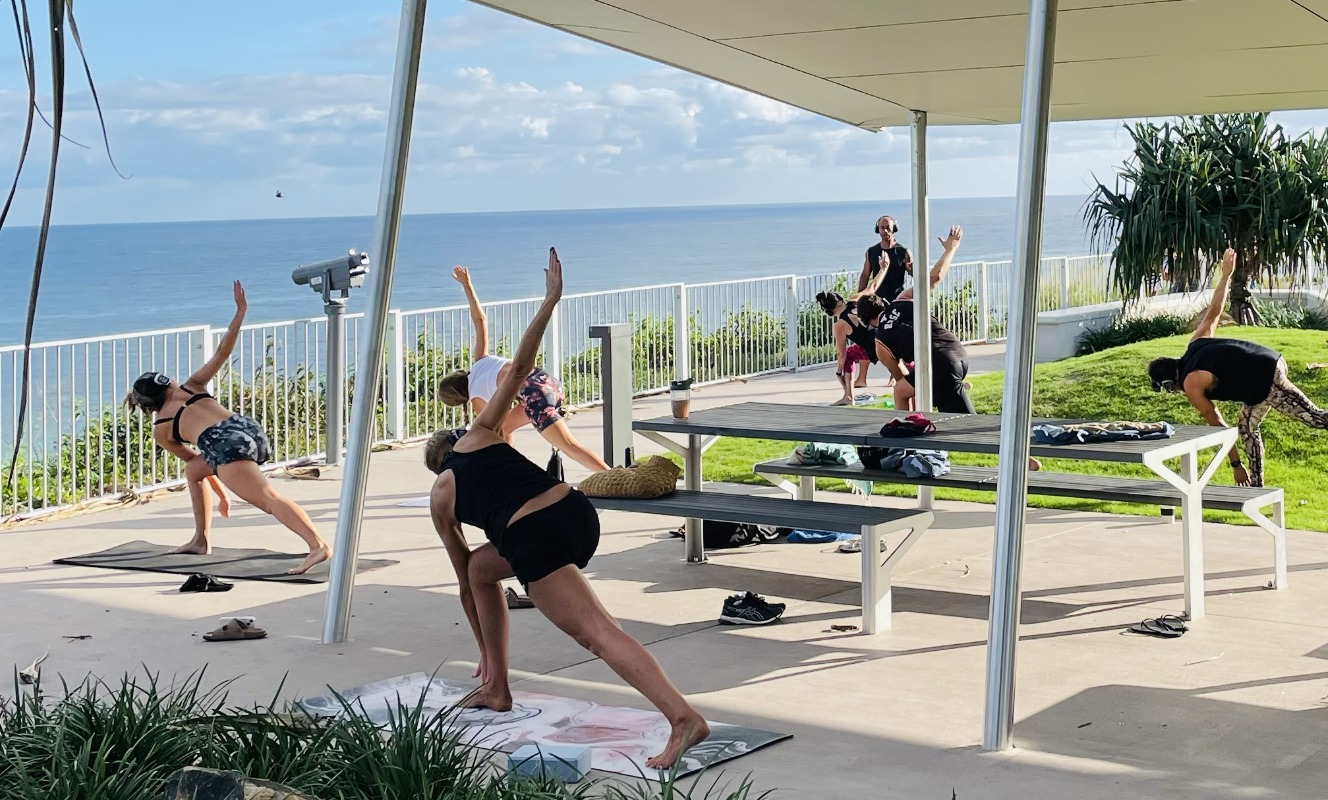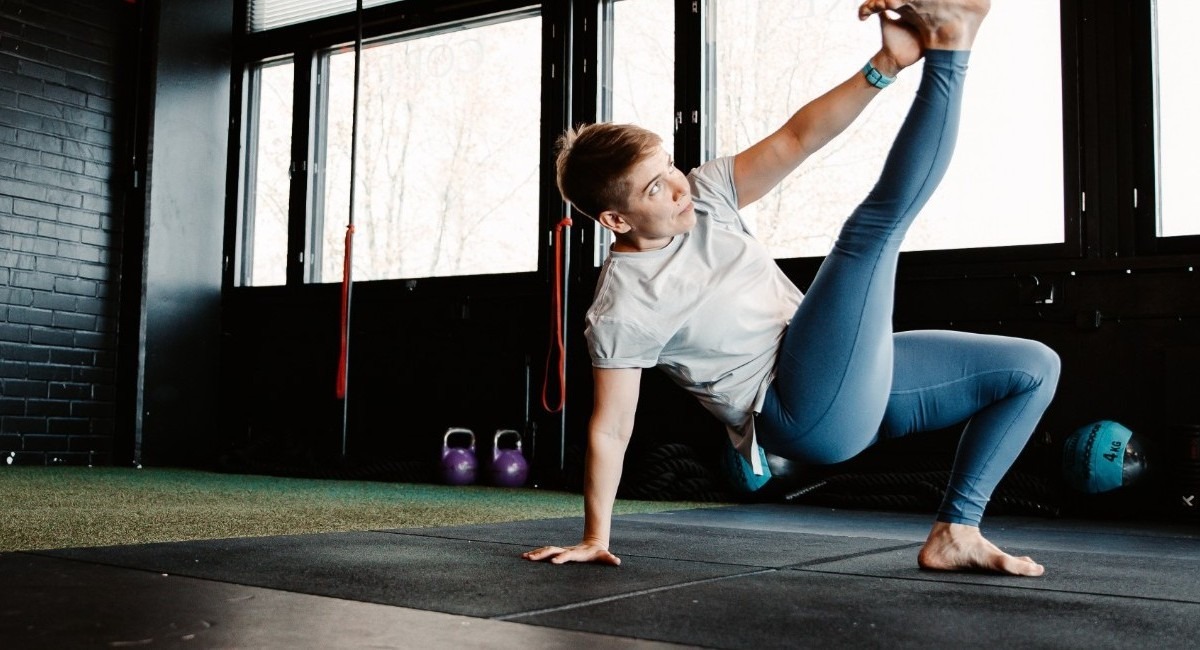
How planning your day makes you more active
Planning your day increases activeness by giving structure, boosting focus, and encouraging intentional movement. A clear plan reduces procrastination and decision fatigue, saving both time and energy. Including physical activity in your schedule, tracking goals, and sticking to routines helps maintain motivation and consistency. Tools like planners and apps enhance efficiency. Over time, daily planning cultivates discipline, reduces stress, and promotes a more energized and active lifestyle, be
💪 Fitness Guru
34 min read · 20, Apr 2025

Introduction
In today’s fast-paced world, staying active and productive can feel like a challenge. Many people struggle to balance work, exercise, personal time, and responsibilities without feeling overwhelmed. The key to tackling this chaos lies in a simple yet powerful habit—daily planning. When you plan your day effectively, you not only improve time management but also naturally boost your physical and mental activity levels.
In this article, we’ll explore how planning your day makes you more active, productive, and focused. From enhancing motivation to eliminating time wastage, daily planning sets the stage for a more energized and purpose-driven lifestyle. Beating laziness in the morning starts with establishing strong habits that act as natural energy boosters, and the key lies in consistency, mindset, and environment. The moment you wake up, avoid hitting the snooze button, as it disrupts your sleep cycle and sends signals to your brain that it's okay to delay action, which sets a lazy tone for the rest of the day. Instead, train yourself to sit up as soon as the alarm rings, even if it’s just to drink a glass of water kept beside your bed, because hydrating your body right after waking up kickstarts your metabolism and helps flush out toxins accumulated overnight, making you feel more alert. Follow that with a simple act of opening your curtains or stepping onto your balcony to soak in some sunlight, as morning light regulates your circadian rhythm, boosts mood-lifting serotonin, and helps your body wake up naturally. A quick stretch or light movement, even if it's just five minutes of yoga or walking around your room, gets your blood flowing and sends oxygen to your brain, which in turn reduces that heavy, sluggish feeling. Brushing your teeth and washing your face with cold water works like a reset button, triggering a refreshing sensation that combats drowsiness. It’s essential to stay away from your phone for at least the first 30 minutes to an hour of your morning because jumping into social media or emails overstimulates your mind with unnecessary distractions, making you feel overwhelmed and mentally tired before your day even begins. Instead, take those precious early minutes for grounding yourself through mindful practices like journaling a few thoughts or gratitude notes, which brings clarity and positivity into your mindset. Following this with a nutritious and light breakfast fuels your body and balances blood sugar levels, giving you steady energy rather than that mid-morning crash. Incorporating some form of movement, whether it’s a brisk walk, dancing to music, or a 15-minute home workout, raises endorphins, the feel-good hormones, making you naturally motivated and less likely to procrastinate. You can also play upbeat music or motivational podcasts while getting ready, which stimulates your brain and builds a sense of excitement for the day ahead. It’s not about being hyper-productive from the first second but about building momentum with small intentional actions. Preparing for the next day the night before, like laying out clothes, prepping breakfast items, or writing a to-do list, eliminates morning decision fatigue and reduces that lazy “I don’t know where to start” feeling. A clean, clutter-free room can also uplift your mood and improve focus because your surroundings reflect and influence your mental state. If you often feel lazy in the morning, check your sleep quality too—sleeping for 7–9 hours in a dark, cool, and quiet room without screen distractions will improve your alertness. Saying a few affirmations or setting an intention out loud like “I’m excited to start fresh today” may feel silly at first, but the brain absorbs spoken words and shapes your mindset accordingly. You can also try splashing your face with water infused with lemon or mint for a more stimulating effect. If you're someone who struggles with willpower alone, setting external accountability like a morning call with a friend, a workout buddy, or even a scheduled task can pull you into action mode. Organizing your first task of the day to be something light, creative, or enjoyable can gently transition you into a productive mindset, rather than pushing yourself too hard and resisting it. Avoid caffeine overload on an empty stomach as it leads to energy crashes; instead, choose herbal teas or warm lemon water to ease into the day. Many people fall into morning laziness because their night is filled with overstimulation, late-night scrolling, or mental clutter, so adopting calming bedtime rituals like reading or dim lighting can support a better start. Lastly, understand that the way you talk to yourself matters; don’t label yourself as lazy but rather as someone working on discipline and energy. Mornings are powerful because they set the rhythm of your entire day, and by making intentional choices like waking with purpose, moving your body, nourishing yourself, and avoiding overstimulation, you can train your brain and body to overcome laziness and welcome each morning with vitality and clarity.
The Connection Between Planning and Physical Activity
One of the major benefits of planning your day is the ability to intentionally schedule physical activities. When exercise or movement is part of your plan, you're more likely to stick to it. Whether it’s a 30-minute walk, a workout session, or simply taking the stairs instead of the elevator—writing it down holds you accountable.
Instead of letting the day pass by in a blur of tasks and distractions, planning ensures that your body gets the attention it deserves. You become more aware of how you spend your time and more committed to incorporating movement, which leads to a more active lifestyle.
Improves Time Management and Reduces Laziness
Without a clear plan, it’s easy to fall into a cycle of procrastination and inactivity. Planning your day helps you use time more wisely and avoid decision fatigue. When you know exactly what to do and when to do it, you don’t waste energy figuring it out on the go.
This clarity keeps you from getting stuck in lazy habits like binge-watching TV or scrolling aimlessly on your phone. With an efficient schedule in place, you're more inclined to move, act, and check off your to-do list—which keeps your body and brain active throughout the day.
Boosts Mental Alertness and Focus
Planning not only organizes your physical activities but also sharpens your mind. When you start your day with a to-do list or schedule, your brain enters a focused mode. You know your priorities, which prevents mental clutter and distractions.
This heightened mental awareness naturally influences your physical energy. A focused mind is more likely to make healthier choices, stay engaged in work, and stay committed to physical tasks. The more organized your mind, the more active your body tends to be.
Encourages Healthy Routines and Habits
Daily planning lays the groundwork for developing healthy habits, such as consistent sleep schedules, nutritious meals, hydration reminders, and regular movement. When these habits are scheduled in advance, they become part of your routine rather than something you "might get around to."
For example, blocking out time for a morning stretch, an afternoon workout, or a post-dinner walk makes it easier to follow through. These small, planned efforts add up to a much more active and health-conscious lifestyle over time.
Reduces Stress and Conserves Energy
When you plan ahead, you minimize surprises and last-minute stress. This gives your mind a break and helps you conserve energy that can be used for physical activity. When you're not overwhelmed or constantly reacting to unexpected tasks, your body is more relaxed and ready to move.
Planning your day gives you control and direction, helping you avoid burnout. With reduced stress and better energy management, you're naturally more inclined to stay active throughout the day.
Promotes a Sense of Accomplishment
One of the most rewarding aspects of daily planning is the sense of achievement it brings. Checking tasks off a list releases dopamine, a "feel-good" hormone that motivates you to keep going. This sense of accomplishment drives you to complete both mental and physical activities.
When you see your progress, whether it’s completing a workout or finishing a home chore, it encourages you to remain active and productive. This positive reinforcement loop builds momentum and keeps you energized and engaged.
Makes Room for Movement in a Busy Schedule
A packed schedule often becomes an excuse for skipping workouts or staying sedentary. But when you plan your day thoughtfully, you can intentionally slot in time for movement—even in small bursts.
You can plan:
- A 5-minute stretch every hour
- A walk while taking calls
- A quick yoga session before bedtime
Even minor physical activities, when planned consistently, help in maintaining an active routine. Planning ensures that fitness doesn't get lost in the chaos of your day.
Improves Sleep Patterns and Next-Day Energy
Planning includes managing your bedtime routine and winding down at the right time. Good sleep is essential for physical recovery and mental clarity. When you plan your day—including breaks and rest—you avoid overexertion and improve your chances of getting quality sleep.
Better sleep restores your energy, making you feel more refreshed and ready to move the next day. Thus, planning today leads to increased activeness tomorrow—a cycle that improves overall well-being.
Encourages Balanced Living
Being active isn’t just about working out—it’s about living a life filled with balance, intention, and movement. When you plan your day, you create time for work, play, rest, social interactions, and self-care. This balance leads to a more fulfilling, physically engaged lifestyle.
Balanced planning helps you avoid both overworking and underachieving. It ensures that you're not just busy, but also actively living each moment with purpose and motion.
Fuels Motivation and Self-Discipline
Planning strengthens your internal motivation. When you take charge of your time, you become more self-disciplined and determined to stay on track. Motivation isn’t always spontaneous—it often follows action.
With a plan in place, you can remind yourself why you want to stay active, and that pushes you to get up and do it—even when you don’t feel like it. Self-discipline built through planning is one of the strongest forces behind an active and successful life.
Conclusion
Planning your day is more than a productivity hack—it’s a lifestyle strategy that naturally encourages activeness, health, and fulfillment. From managing time and reducing laziness to fueling motivation and building healthy routines, daily planning is your secret weapon for living a more active life.
By organizing your tasks, setting clear goals, and making time for movement, you create a positive loop of productivity and physical engagement. So grab your planner, set your intentions, and take the first step towards a more active, energized you.
Q&A Section
How Planning Your Day Makes You More Active
Q1. How does daily planning improve activeness?
Ans:- Planning your day helps prioritize tasks, set goals, and manage time efficiently, reducing procrastination and keeping you mentally and physically engaged throughout the day.
Q2. What role does a to-do list play in staying active?
Ans:- A to-do list gives structure to your day, keeping you focused and motivated to complete tasks, which leads to increased productivity and energy.
Q3. Can planning reduce mental fatigue?
Ans:- Yes, planning minimizes decision fatigue by setting a clear path for your day, allowing you to conserve mental energy for more important activities.
Q4. How does planning encourage physical activity?
Ans:- When you plan your day, you’re more likely to schedule exercise or active breaks, which boosts physical energy and reduces sedentary behavior.
Q5. Does planning improve consistency in daily habits?
Ans:- Absolutely, regular planning builds discipline and routine, making it easier to stick to healthy habits like walking, stretching, or mindful movement.
Q6. How does planning affect motivation levels?
Ans:- Seeing your goals laid out and tracking progress increases motivation and gives a sense of purpose, which keeps you more alert and active.
Q7. Can planning help reduce stress and increase activity?
Ans:- Yes, planning ahead reduces last-minute stress, which often drains energy. A calm mind encourages more active and confident behavior.
Q8. What tools can help in daily planning for activeness?
Ans:- Tools like planners, mobile apps, or digital calendars can organize your schedule, remind you of tasks, and help balance active and rest periods.
Q9. How early should one plan to stay active?
Ans:- Planning either the night before or early in the morning sets the tone for the day, helping you stay prepared and active from the start.
Q10. Does daily planning help in long-term lifestyle change?
Ans:- Yes, consistent daily planning gradually builds healthier habits, which lead to a more active and organized lifestyle over time.
Similar Articles
Find more relatable content in similar Articles

The Science of Breathwork: Fitness Beyond Muscles...
Exploring how conscious contro.. Read More

The Silent Workout: Fitness Without Any Equipment or Noise...
“Discover the power of silent .. Read More

Microbiome and Muscle: Gut Health as a Hidden Fitness Tool...
Unlock the hidden potential of.. Read More

Fitness Lessons from Wild Animals – Move Like Nature Intende..
“Discover how observing wild a.. Read More
© 2024 Copyrights by rFitness. All Rights Reserved.